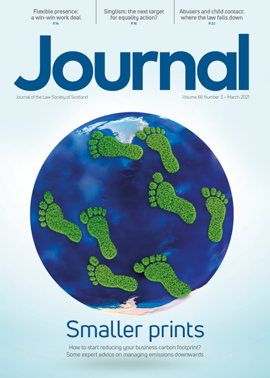1,000 days of mediation

Back in 2001, the delivery of more than 1,000 days of mediation would have seemed like a pipe dream, even if we had thought about it. Back then, the target for our small start-up business was simply to introduce mediation to commercial and civil disputes in Scotland.
As I recall, we delivered one mediation in year 1 and four in year 2. We celebrated with a real sense of achievement when we passed 50 days of mediations in 2004. What seems relatively commonplace now, if still a minority activity, was new and experimental then.
In the years which have elapsed since Core was founded, the use of mediation has matured in this jurisdiction.
It is much easier to arrange a mediation day or days, as many solicitors are familiar with the concept and many are frequent users.
According to Core’s records, we have worked with nearly 350 different legal firms and in-house counsel and nearly 1,000 individual solicitors, to which can be added many members of the bar. Some firms have used mediation on scores of occasions.
There is a growing number of mediations involving a mix of public and private sector parties, often in large infrastructure projects where public funding is associated with private contractors. The potential to minimise risk and reduce costs is significant.
This is underscored by statistics on resolutions achieved. In well over 80% of Core’s mediations a satisfactory agreement is reached, varying over the past five years from an annual low of 83% to a peak of 94%. It is a tribute to the parties and their advisers that in over four out of every five matters which go to mediation, a successful result is achieved.
The number of two-day mediations has reduced as users have become more adept at preparing in advance and moving more quickly to the heart of matters in one day. Occasionally though, owing to the complexity of the issues or the number of parties involved, two or more days are required.
A very few mediations need careful nurturing over a number of weeks or even months. Similarly, the classic one day does not suit every situation and many employment-related mediations start with individual meetings in advance of a half day or full day. The model is infinitely flexible to meet the range of needs
and circumstances.
The value of disputes which come to mediation range from those without any monetary issue to claims in eight or nine figures. Our mediation hot spot map (left) shows the geographical spread of Core’s work. Our motto might be: “You have a difficult dispute? We’ll travel!”
Miriam Kennedy, Core’s Business and Mediation Manager, writes:
“Core’s other project back in 2001 was to introduce courses to encourage people to train in mediation and negotiation skills. Undoubtedly, this has encouraged the kind of growth highlighted above.
“In a recent survey of our alumni, when asked for a reason for undertaking Core’s mediation training, 83% pointed to professional development and to enhance skills, while personal development was also important for more than 70%. Over two thirds expressed the view that their employer and colleagues had benefited too.
“Just over 50% of course participants are employed; nearly 40% work for themselves. Nearly everyone said that the training is relevant to their current roles. Everyone had experienced a positive impact on their wellbeing and expressed the view that their ability to handle conflict had been enhanced.
“Forty per cent of alumni come from the legal sector while public administration, consultancy and finance make up for more than the lawyers in total. Just over half are in the private sector, with the public and third sectors making up much of the balance. Overall, this is a good mix and indicates mediation’s reach.”
In this issue
- Claiming under the advance payment scheme
- Time for a written constitution
- New form F9: worth the wait?
- Wedded to a matrimonial property regime
- Brexit divorce set to increase UK's “skype families”
- Corporate personality: Justice v Doctrine
- Reading for pleasure
- The Law Society of Scotland Expert Witness Index 2019
- Opinion: Judith Robertson
- Book reviews
- Profile: Michael Clancy
- President's column
- Is your legal data being held to ransom?
- People on the move
- Sign up – log in – action!
- Frozen out?
- Taxing times for litigators
- DNA analysis: when research just isn’t enough
- Brexit focus: EU citizen settlement remedies
- Why employers should report on wellbeing
- 3% – and then what?
- 1,000 days of mediation
- Barred from acting
- To name or not to name?
- Enter the “What I Think”
- Fixed penalties and fair trials
- Auto-enrolment: keeping employers on their toes
- Scottish Solicitors' Discipline Tribunal
- Vulnerable accused: a need for knowledge
- Burdens and who can enforce them
- Convener’s final bow
- Public policy highlights
- TCSP review update
- Westminster: answering the call
- Accredited paralegal practice area highlight: family law
- Accredited Paralegal Committee profile
- Nyona named star paralegal
- Ask Ash
- Moving nightmares part 2
- Complaints: seeking consistent practice
- Morally bankrupt?
- For the elderly: how SFE works
- Standing up to challenge






